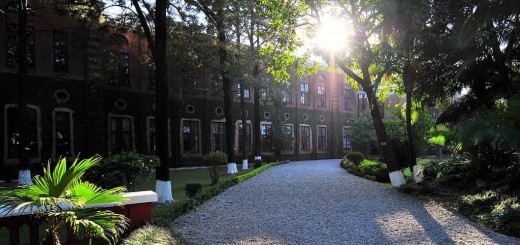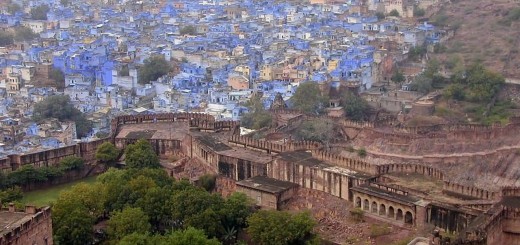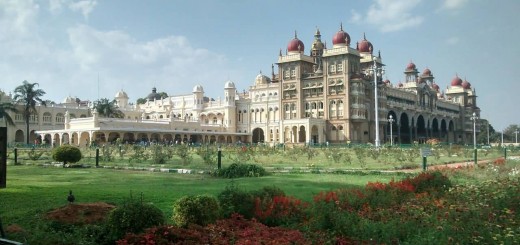5 Greatest Historical Rulers Of All Time
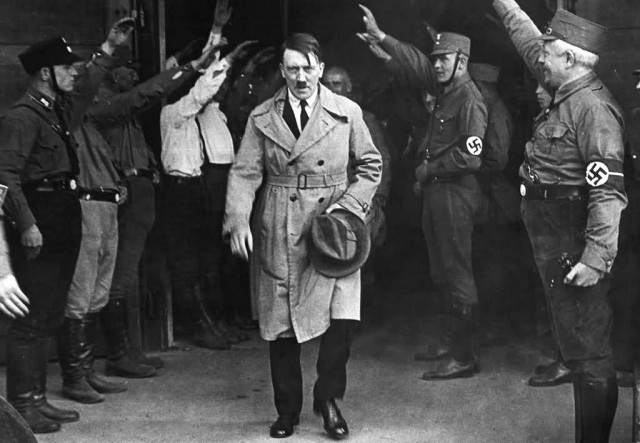
Adolf Hitler (Photo Credit: Recuerdos de Pandora / CC BY-SA 2.0)
Adolf Hitler
Adolf Hitler was an Austrian-born German politician who was the leader of the Nazi Party. He was chancellor of Germany from 1933 to 1945 and leader of Nazi Germany from 1934 to 1945. Hitler was at the centre of World War II in Europe. Hitler was a decorated veteran of World War I.
He joined the German Workers’ Party in 1919 and became leader of the NSDAP in 1921. His aggressive foreign policy is considered to be the primary cause of the outbreak of World War II in Europe. On 30 April 1945, less than two days later, the two committed suicide to avoid capture by the Red Army and their corpses were burned.
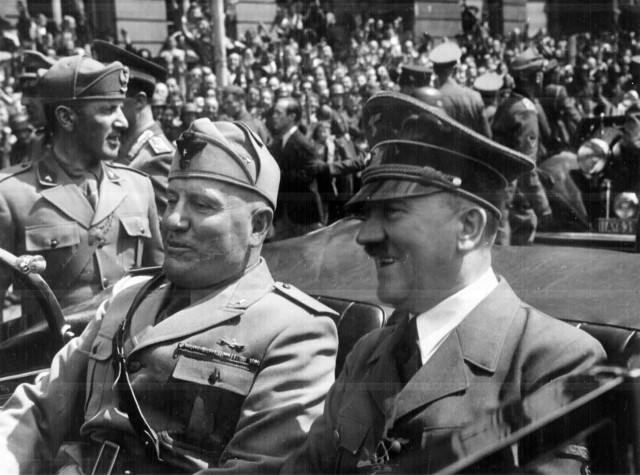
Adolf Hitler And Benito Mussolini In Germany (Photo Credit: Marion Doss / CC BY-SA 2.0)
Alexander The Great
Alexander the Great was a King of the Ancient Greek kingdom of Macedon and a member of the Argead dynasty. He born in Pella in 356 BC. He spent most of his ruling years on an unprecedented military campaign through Asia and northeast Africa, until by the age of thirty. He had created one of the largest empires of the ancient world, stretching from Greece to Egypt and into northwest India. He was undefeated in battle and is considered one of history’s most successful military commanders.
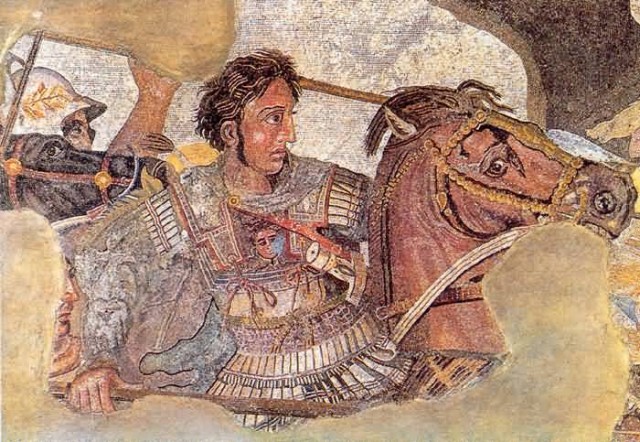
Alexander The Great (Photo Credit: Playing Futures: Applied Nomadology / CC BY 2.0)
Queen Elizabeth I
Elizabeth I was Queen of England and Ireland from 17 November 1558 until her death. The childless Elizabeth was the fifth and last monarch of the Tudor dynasty. Elizabeth was the daughter of Henry VIII by second wife, Anne Boleyn. Anne’s marriage to Henry VIII was annulled and Elizabeth was declared illegitimate. In 1558, Elizabeth succeeded her half-sister to the throne and set out to rule by good counsel. Elizabeth’s reign is known as the Elizabethan era.
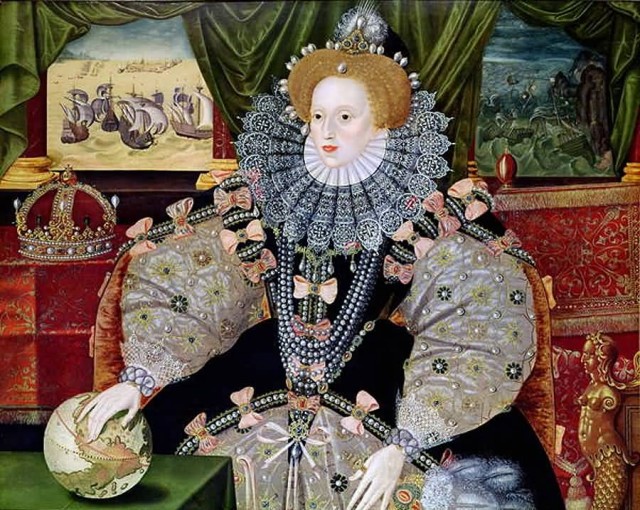
Elizabeth I (Photo Credit: Public Domain)
Akbar
Abu’l-Fath Jalal ud-din Muhammad Akbar, known popularly as Akbar was Mughal Emperor from 1556 until his death. He was the third and one of the greatest rulers of the Mughal Dynasty in India. Akbar succeeded his father, Humayun, under a regent, Bairam Khan, who helped the young emperor expand and consolidate Mughal domains in India. Akbar born in 15 October 1542 and he died in 27 October 1605.
His power and influence extended over the entire country because of Mughal military, political, cultural and economic dominance. Akbar’s marriage with Hindu princess Heer Kunwari/Harkha Bai (Popurarly known as Jodha bai) produced important positive effects on both on his personal rule of life and on his public policy. She was also known as Akbar’s first and last love.
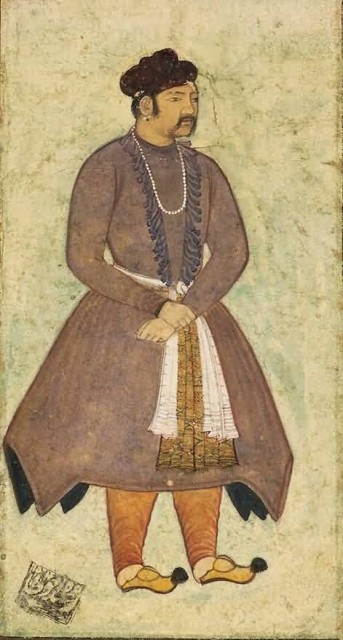
Portrait Of Akbar (Photo Credit: Manohar / Public Domain)
Genghis Khan
Genghis Khan born in Temujin likely in year of 1162 and he died in 18 August 1227. He was the Great Khan of the Mongol Empire, which became the largest contiguous empire in history after his demise. He came to power by uniting many of the nomadic tribes of northeast Asia.
After founding the Mongol Empire and being proclaimed “Genghis Khan,” he started the Mongol invasions that resulted in the conquest of most of Eurasia. Before Genghis Khan died, he assigned Ogedei Khan as his successor and split his empire into khanates among his sons and grandsons. He died in 1227 after defeating the Western Xia.
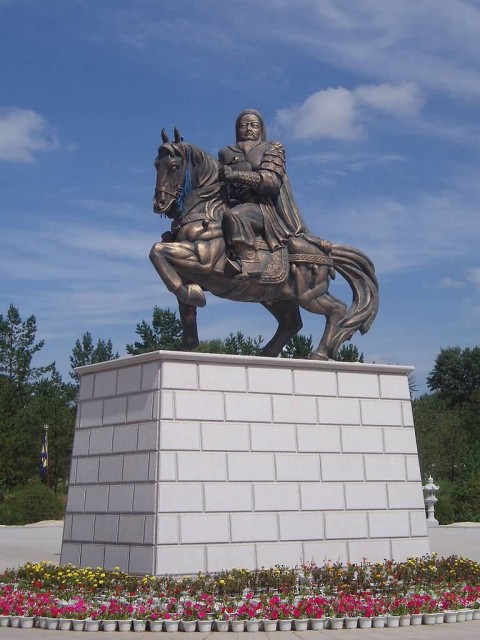
Genghis Khan Statue (Photo Credit: Fanghong / CC BY-SA 3.0)

